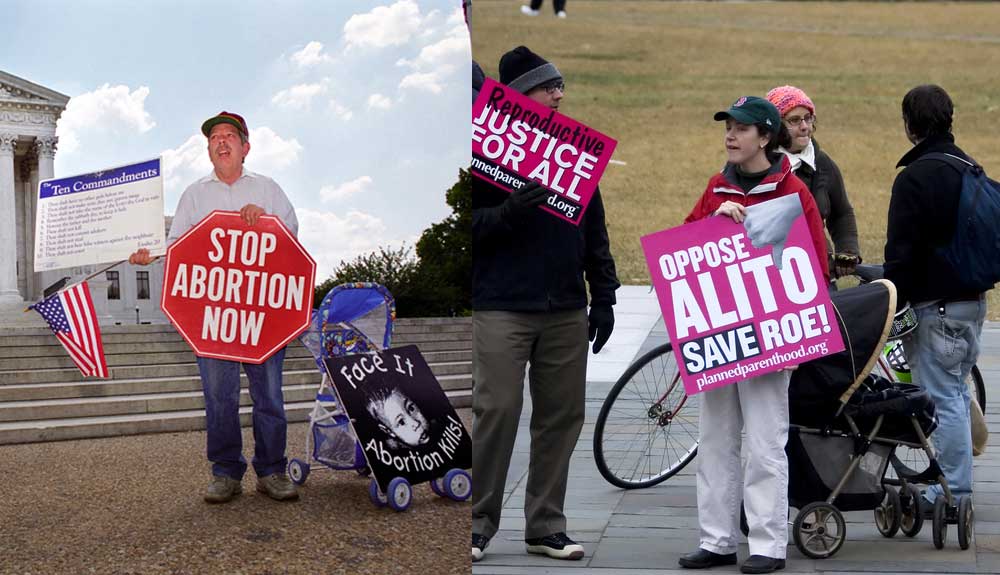Providing Abortions Can Be the Moral Choice, Doctor Says

Editor's note: As of August 5, 2022, the constitutional right to abortion has been eliminated in the U.S., following the Supreme Court's decision to overturn Roe v. Wade on June 24, 2022. The following article was published on Sep 12, 2012, and therefore any legal information is longer accurate.
—Abortion laws by state: https://reproductiverights.org/maps/abortion-laws-by-state/
—For questions about legal rights and self-managed abortion: www.reprolegalhelpline.org
—To find an abortion clinic in the US: www.ineedanA.com
—Miscarriage & Abortion Hotline operated by doctors who can offer expert medical advice: Available online or at 833-246-2632
—To find practical support accessing abortion: www.apiarycollective.org
Since 1973, American law has protected health-care workers who object to abortion by prohibiting discrimination against those who refuse to assist with the procedure. Now, a new editorial in the New England Journal of Medicine (NEJM) suggests that workers who want to provide abortions should get these "conscience exceptions" from anti-abortion legislation as well.
Conscience or refusal exceptions allow health-care workers to refuse to perform medical procedures, including abortions, that they find wrong on moral or religious grounds. These laws generally prevent medical professionals from being sued or fired for refusing to participate in a procedure. For example, a nurse at a general hospital or private practice where the doctor provided abortions is not be required to assist in the procedure, and under the law, would not be discriminated against for refusing.
Historically, conscience objections have been linked only with anti-abortion causes, writes Lisa Harris, a professor of obstetrics and gynecology at the University of Michigan Health System, in the Sept. 13 issue of NEJM. The assumption, she writes, is that refusing to provide abortions is the "moral" thing to do, an understanding that leaves out abortion providers, many of whom provide the service because of strong moral beliefs, Harris said.
"Conscience doesn't mean you have a specific set of beliefs," Harris told LiveScience. "Conscience means you're a human being, and human beings vary in their beliefs."
The first conscience objection came shortly after the Supreme Court decision in Roe v. Wade. The 1973 Church amendment ensures that health-care workers cannot be required to perform abortions or sterilizations, nor can they be discriminated against for refusing.
More recently, conscience or refusal clauses have been under debate for pharmacists who do not want to supply emergency contraception, a form of hormonal birth control that can be taken up to 72 hours after unprotected intercourse. Many states, including Colorado, Florida and Maine, have laws allowing physicians and other medical professionals to refuse to dispense contraceptives if they have religious or moral objections. [The History & Future of Birth Control]
Sign up for the Live Science daily newsletter now
Get the world’s most fascinating discoveries delivered straight to your inbox.
On the other hand, laws restricting abortion access don't come with conscience clauses, Harris said. For example, in May, Georgia's governor signed into law legislation that prevents most abortions after 20 weeks of pregnancy. That law leaves no "conscience clause" for providers who might see providing a patient with a later abortion as the moral choice in some cases, Harris said.
Many abortion providers are pro-abortion rights because they have strong moral beliefs regarding women's reproductive autonomy, because they are concerned with the mother's health or for other reasons, she said. These moral judgments get lost in the abortion debate, Harris said.
Harris said she'd like to see a clause recognizing moral reasons for having and providing abortions. "Right now, the only folks who are actively claiming moral ground are the people who oppose abortions," she said.
Compounding the problem, Harris said, is that there is no standard of care for enacting a conscience clause. Doctors are not required to meet any particular standard to do so, nor are there broad policies in place to ensure that patients are treated humanely in the process, she said.
"I've seen patients be really hurt and humiliated by doctors who they turned to, to help them get an abortion, who told them they were going to burn in hell and things like that," Harris said. She emphasized that she believes that conscience clauses are important and that no one should be forced to do something they morally object to, but added, "they have to do it humanely and safely, and right now we don't have any standard of care."
Outlining such standards would be a job for doctors, bioethicists and medical professional organizations, Harris said.
Follow Stephanie Pappas on Twitter @sipappas or LiveScience @livescience. We're also on Facebook & Google+.
This article was updated on August 5, 2022 by Live Science contributor Alice Ball following the Supreme Court's decision to overturn Roe v. Wade on June 24, 2022. This decision eliminated the constitutional right to abortion that was established by the 1973 court case and later affirmed by a 1992 case called Planned Parenthood of Southeastern Pennsylvania v. Casey.

Stephanie Pappas is a contributing writer for Live Science, covering topics ranging from geoscience to archaeology to the human brain and behavior. She was previously a senior writer for Live Science but is now a freelancer based in Denver, Colorado, and regularly contributes to Scientific American and The Monitor, the monthly magazine of the American Psychological Association. Stephanie received a bachelor's degree in psychology from the University of South Carolina and a graduate certificate in science communication from the University of California, Santa Cruz.









